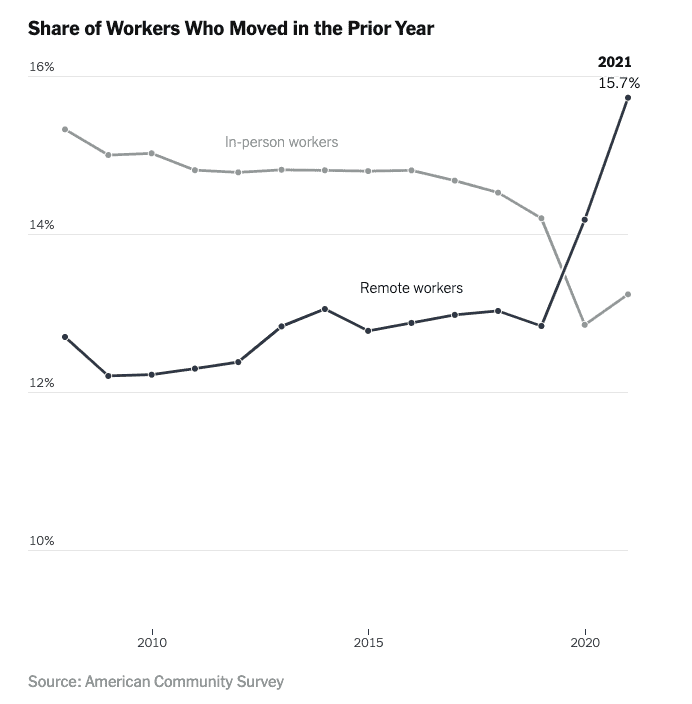
In prepandemic times, the few Americans who worked from home appeared relatively settled there.
They were less likely to move than other workers. And they probably had less reason to: If you were sitting in a rare job in 2018 that enabled regular work from home — and your life was adjusted to that good fortune — why move somewhere new?
The abrupt rise and shifting nature of remote work over the last few years has upended this pattern, according to an Upshot analysis of census migration data. During the pandemic, people who worked from home became significantly more likely to move — and more likely to do so than all other workers:
This rising mobility was driven by remote workers who sought new housing in their same metro areas, but also by a wave of remote workers decamping to other parts of the country. In the first two years of the pandemic, one in four workers who moved long-distance was working remotely in a new home — a previously unheard-of scale of remote migration.
In the two years leading […]









